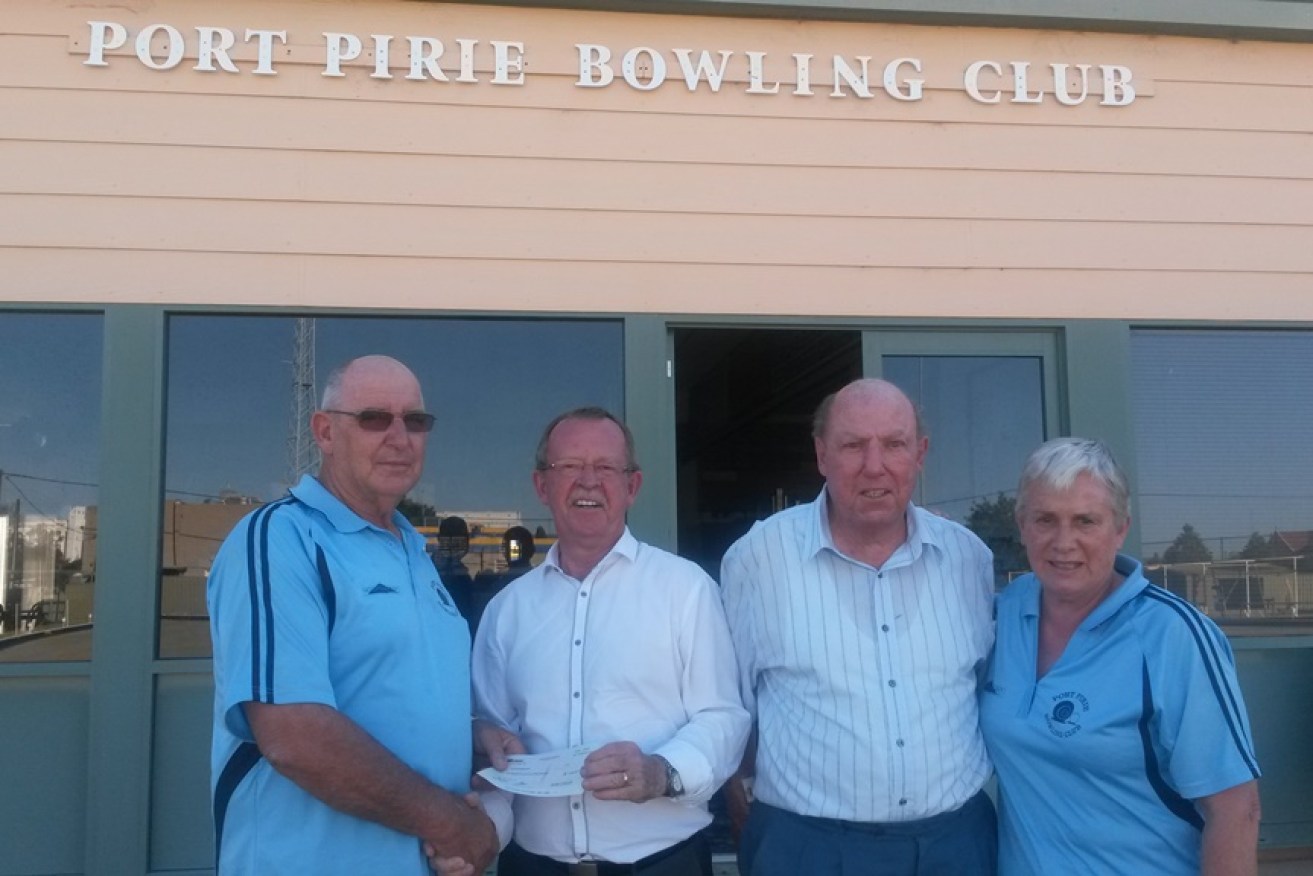Campaign Diary: pencil pushers and independents

Geoff Brock (second from left) in his hometown of Port Pirie.
With their pencils sharpened, staff at the Electoral Commission have started opening envelopes containing votes cast in the two weeks prior to election day.
Pre-poll voting centres are a recent phenomenon that have been allowed to expand to such an extent that more than one in five votes are cast early.
The “old way” for voters who couldn’t make it to a booth on polling day was to apply for, and then post your ballot paper.
That system became muddied when the major parties used the system to “help” voters apply for the postal ballot and then “helpfully” passed on their campaign material with the return envelope.
That lurk dried up with new laws passed in 2013.
The Electoral Commission, meanwhile, expanded the number and availability of early poll booths.
The shift towards high numbers of early votes first surfaced in the Frome by-election of 2009 and was a key factor in independent Port Pirie Mayor Geoff Brock taking the seat from the Liberal Party.
So here we are in 2014 and a huge chunk of votes have been cast early and no-one really knows how they will trend.
Are they the votes of busy workers, small business people and holiday makers or are they the votes of people who just preferred to get it over and done with and had something more interesting to do on Saturday?
“The declaration votes, mainly postal and early votes, make up about 20 per cent of all votes cast at the election and may be crucial in deciding the final results in a number of districts,” the Electoral Commission confirmed today
Electoral Commissioner Kay Mousley said voter details on each declaration envelope needed to be checked against the electoral roll before the ballot papers could be admitted to the general count.
“This checking is a time-consuming process,” she said.
This gives time to the two key independents to have their moment in the sun.
If the seat count falls as expected (23 Labor, 22 Liberal), Geoff Brock (Frome) and Bob Such (Fisher) will almost certainly ignore the vote trend in their own electorates and any state-wide preference for a Liberal Government and re-install Jay Weatherill as Premier.
Brock is a Labor man; he worked at the lead smelter in Port Pirie, he was Mayor of Port Pirie and the Port Pirie part of his seat votes about 65 per cent Labor.
While Labor’s overall vote in Frome is just 11 per cent, Brock is the de facto representative of the working class in the industrial city.
Such has a Liberal pedigree, and was a minister in the Dean Brown Liberal Government.
He was, however, splattered with the blood spilled in the 1996 leadership coup against Brown, led by the Evans faction, and lost his ministry.
Over the next four years, Such became more disenchanted with the divisions and then publicly opposed Premier John Olsen’s decision to sell the state’s electricity assets.
After winning three elections as a Liberal, Such gave up his allegiance to the Liberals, moved to the cross-benches in 2000 and has now won four elections as an independent.
The Evan’s faction again waged war against Such in his seat of Fisher this election and he complained loudly that he should be allowed to maintain his hold on this still-conservative seat.
Bob Such feels he owes nothing to the Liberal Party. His performance on 891ABC radio’s morning program today gave a clear signal of which way he’s heading.
He defended Labor as not being at fault over the State Bank collapse in 1992, bagged the Marshall economic principle that small business can create jobs without government assistance and had a veiled crack at Liberal PM Tony Abbott.
It will also be of little comfort to Liberal Leader Steven Marshall to recall that candidates from conservative seats have kept Labor in power so often in the past – Peter Lewis from the Murray Mallee, Karlene Maywald from the Riverland and Rory McEwen from Mount Gambier.
Marshall’s only hope is for the pre-poll votes to trend about 54 per cent in his party’s favour and push him to victory in 24 seats.
It’s more likely, however, that despite the preference of a majority of voters for the Liberal Party, the stated support for the Liberals by key business and industry bodies and editorial support of the major newspapers for a change of government, South Australia will have a Labor Government.
The Australian’s political reporter Sarah Martin summed it up best today: “It’s great for journalists – but it’s going to be a rocky ride for South Australia.”




